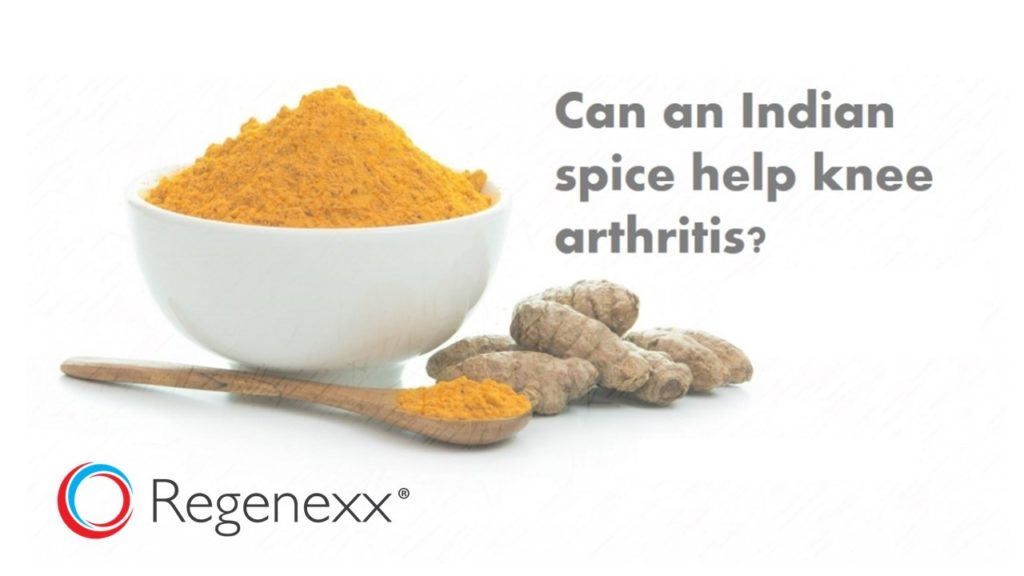Curcumin for Knee Arthritis? New Research…
Why are we so focused on getting patients on Curcumin for knee arthritis and other types of pain? After all, what evidence is there that this Indian spice is helpful for patients with arthritis or other types of chronic musculoskeletal pain? Why should you take Curcumin and ditch your NSAID drugs? A new study adds to the body of research showing this stuff works.
This past month, frustrated in spending years trying to get our patients off of toxic NSAID drugs, we launched our Regenexx Turmeric Curcumin Complex with BioPerine. The main ingredient in this supplement is Curcumin, which has been shown in recent research to be equivalent to Ibuprofen in helping knee arthritis pain. But we’re also so hot on Curcumin for the other things studies have shown it can do.
Case in point is a new study testing what Curcumin does to “oxidative stress”. That last concept may need some explaining. Oxidative stress is essentially an imbalance between the production of bad free radicals and the ability of the body to detoxify their harmful effects. Oxidative stress has been implicated as one of the many things going wrong in arthritis patients. So reducing these markers in the blood in these patients is a good thing.
The new study looked at 40 knee arthritis patients who were split between taking 1,500 mg of Curcumin and a placebo for 6 weeks while oxidative stress markers were measured in their blood. The Curcumin group showed much less oxidative stress than placebo. How big an effect was there? The three markers went in the right direction and changed between 200-400%!
The upshot? At the end of the day, the research for the use of Curcumin’s anti-inflammatory support is mounting. This new study adds more research about it’s anti-oxidant properties!
These statements have not been evaluated by the Food and Drug Administration. These products are not intended to diagnose, treat, cure or prevent any disease.

NOTE: This blog post provides general information to help the reader better understand regenerative medicine, musculoskeletal health, and related subjects. All content provided in this blog, website, or any linked materials, including text, graphics, images, patient profiles, outcomes, and information, are not intended and should not be considered or used as a substitute for medical advice, diagnosis, or treatment. Please always consult with a professional and certified healthcare provider to discuss if a treatment is right for you.

